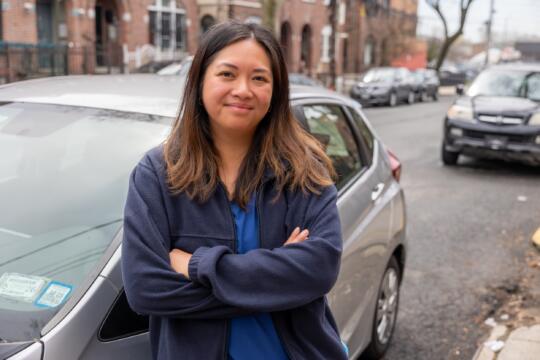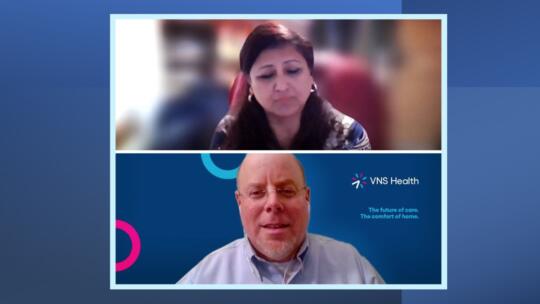A Day in the Life of Personal Care and MLTC Nurse Xiang Jin
Welcome to another edition of “A Day in the Life”—a Frontline series that follows team members from different parts of VNS Health as they go about a typical day at work.
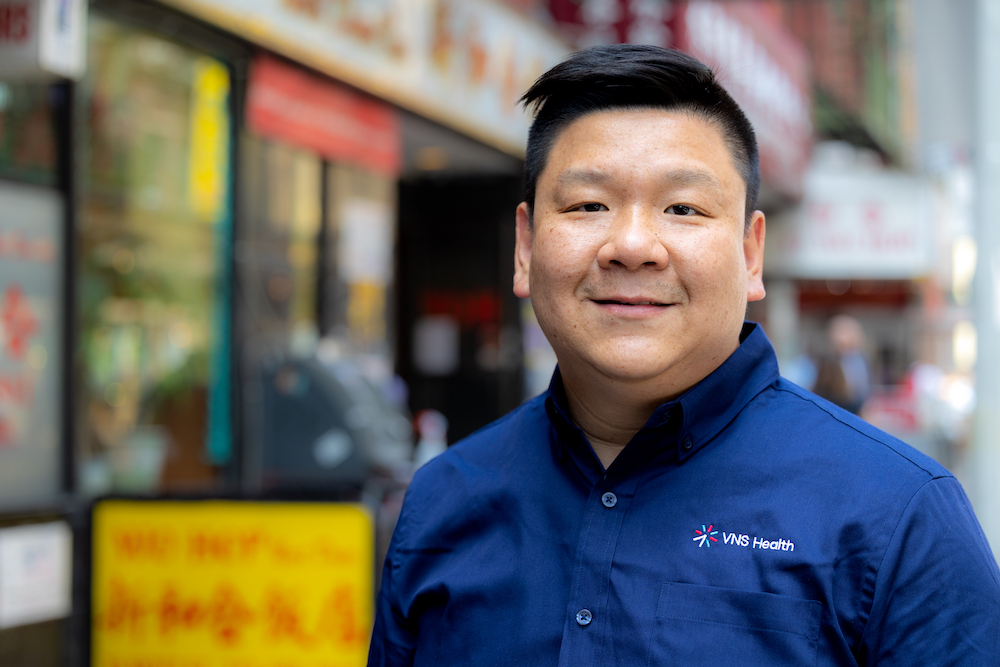
Xiang Jin, a nurse in VNS Health Personal Care, works three days a week calling on patients who belong to our Chinatown NNORC (Neighborhood Naturally Occurring Retirement Community), and two days per week caring for members of VNS Health’s MLTC health plan. We asked him to take us through a sample day of his (very full!) schedule.
5:30 a.m.
I started at VNS Health six years ago as a per-diem nurse with the MLTC health plan, then I was offered three days a week as a NNORC nurse. I continue to work with the MLTC plan Mondays and Fridays because of the nursing shortage. I also do my own scheduling, which makes for a very busy week and long days!
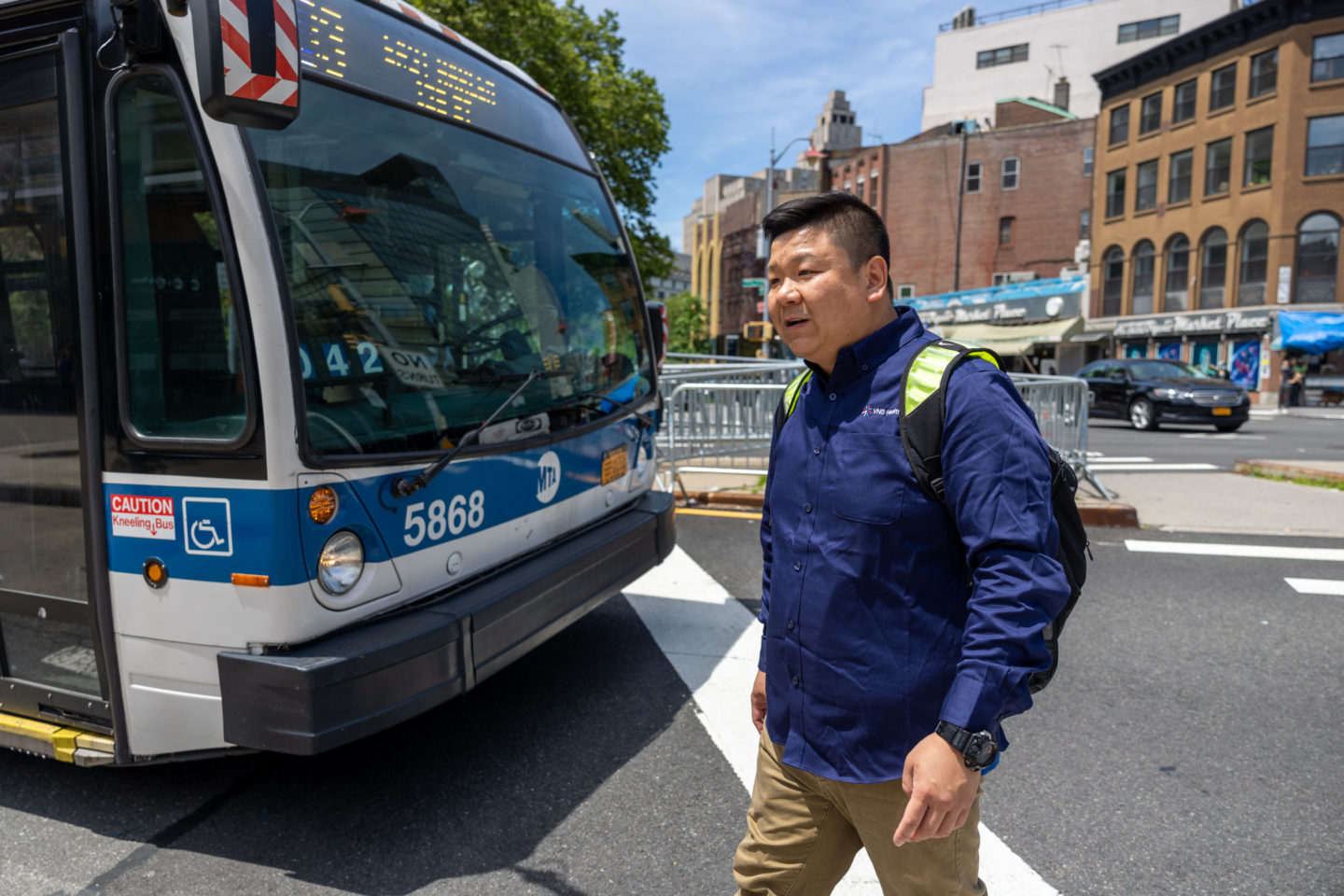
Because I live in Central New Jersey, I wake up early and take the 6:19 bus into Manhattan, which gets me there by 8:00 a.m. if there isn’t too much traffic. When I’m with the NNORC, it’s a little less rushed since I’m based in the Chinatown area; but on Mondays and Fridays, when I’m seeing MLTC members, I’m running all over town, which takes up a lot of time. I try to eat a big breakfast because I rarely have time for lunch. If I have 45 minutes to spare (which isn’t often), I’ll go to a Chinatown restaurant before my first appointment. Usually, though, I just grab a bun and coffee from a random bakery and eat it quickly on any available bench.
The workday begins
I generally see my first patient around 9:00 a.m. The rest of my day depends very much on which day of the week it is. Because the NNORC is funded through Personal Care and the MLTC plan is funded by Medicaid, I have to keep those days very separate.
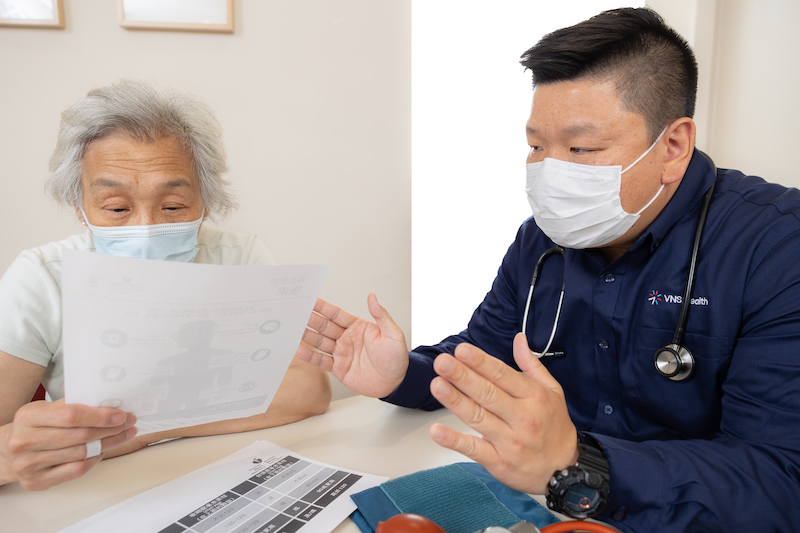
On my NNORC days, I provide health services—including assessments, education, advocacy and linkage to resources—for seven to eight clients a day. Because they’re all in the Chinatown area, the scheduling isn’t too chaotic. I love working with this community: I speak Mandarin and Cantonese and I understand the culture, so it’s rewarding to help elderly clients with their unique needs. Lately, I’ve also helped advise them on how to stay safe from hate attacks that have been happening to Asian Americans. They’re scared, so I recommend a device which, if someone is under attack, triggers an alarm to alert police and frighten away the attacker. I also advise my clients to go shopping with a home health aide, to reduce the chances of an attack.
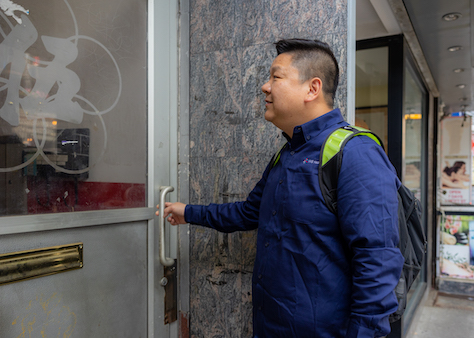
On my MLTC days, I could be all over the city, and the visits aren’t always logically spaced. I have to work with lots of different moving parts. Since I’m also a home health aide (HHA) supervisor, I often have to arrange a visit during a time when the aide is present, so lots of factors determine when that visit might take place. Usually I see about four patients a day, but on one recent day I had seven, which took me from the Upper East Side to Harlem to the NYU area to West 75th to East 34th. So those days can get very crazy indeed.
Lunch
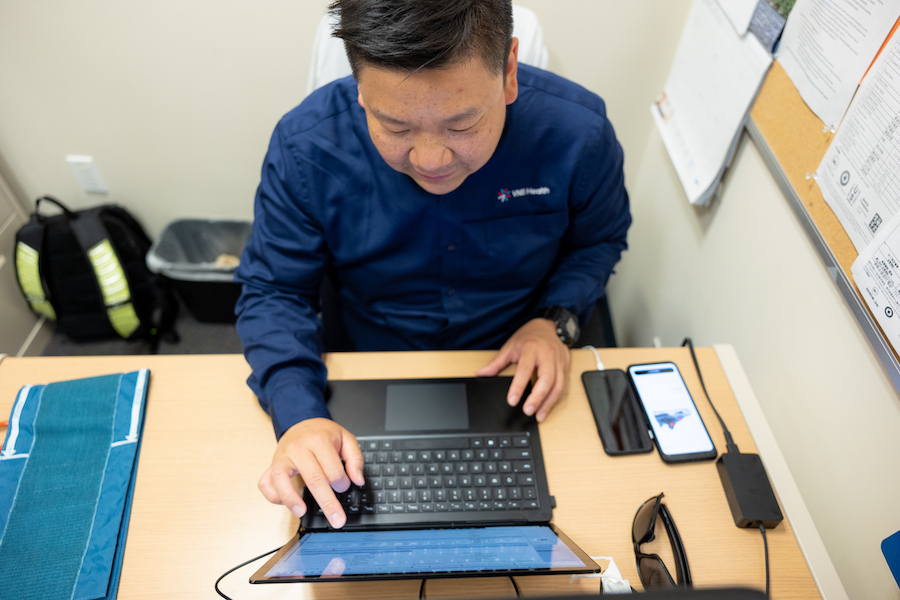
I always skip lunch on my MLTC days to see as many clients as possible, since I spend so much time traveling. I do take a lunch hour from 12:00 to 1:00 on my NNORC days, when I’m based in Chinatown, but I often use that time to do documentation and make follow-up calls. Scheduling is the most time-consuming part of my job. I don’t have a scheduler like full-time MLTC nurses do, and for billing reasons I can’t do MLTC work on my NNORC time—so because my lunch hour is my own time, that’s the only hour I can use to schedule and contact MLTC clients. I’ll spend maybe 20 minutes eating and the rest of the hour scheduling MLTC patients for the following Friday and Monday. I have a long Excel sheet with all my healthcare management cases, and that’s how I keep track of which ones are coming up and when I need to schedule them.
End of day
On my NNORC days, my visits are over by 3:30, which is when we have an hour-long team meeting on Microsoft Teams. We have two social workers and other team members at the meetings, and we basically report to each other what’s going on and discuss the issues and any specific needs our clients might have. For instance, I might have determined that one of my clients needs the assistance of a social worker or other service.
On my MLTC days, I might be done in the city as early as 2:30 on a good day, if I’m not taking extra cases, since I skip lunch to see as many patients as possible. If I’m seeing seven cases, I might be working until 4:30. If I leave the city at 2:30, I get home by 5—but the day isn’t over yet! I still have to answer emails, finish documentation, and schedule any special follow-up cases that my manager has forwarded to me, such as a patient who has fallen or has open wounds. A lot of the special cases I get are Chinese-speaking patients, since I can converse with them.
If I leave the city at 5:00, I get home around 7:00. I’ll take a shower, grab a bite, and then finish any documentation from the day’s cases. Later days mean that I’ve seen more patients, so there’s more documentation to do.
Weekends
I am off on weekends, but I often use them to catch up on work, especially at the beginning of the month. That’s when my manager gives me the list of MLTC cases that are (due) expiring or need reviewing, which means I have 40 or 50 patients to check on and schedule for that month. Every six months, home care service has to be reviewed to keep our patients healthy and safe, so I have to reassess plans of care based on my patients’ condition, and train the home health aide if needed.

The little free time I have, I use to study—I’m in nursing school, working towards my RN-to-BSN bachelor’s degree, which I’m set to complete at the end of the year. It’s a fully online program that’s self-paced, with lots of assignments: reading, research papers and presentations, and a weekly discussion.
The downside, aside from lack of sleep, is that I sometimes don’t have any time for my family, which includes my five-year-old daughter. They basically see me come home and head to my basement office. So I really appreciate my wife, my parents, and my in-laws, who are taking care of the things that I don’t have time to do now.
I know it will all be worth it, though. I love my work and I want to expand my responsibilities and work in other fields within the organization, and maybe teach new nurses. It’s a very rewarding job. I love to help people, and that’s something that money cannot buy.
